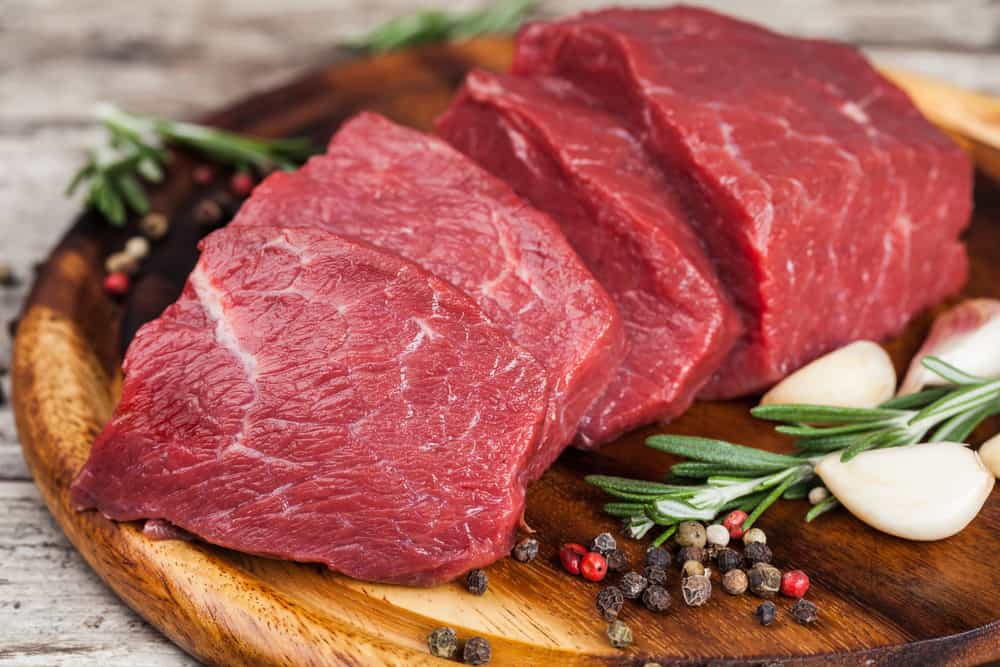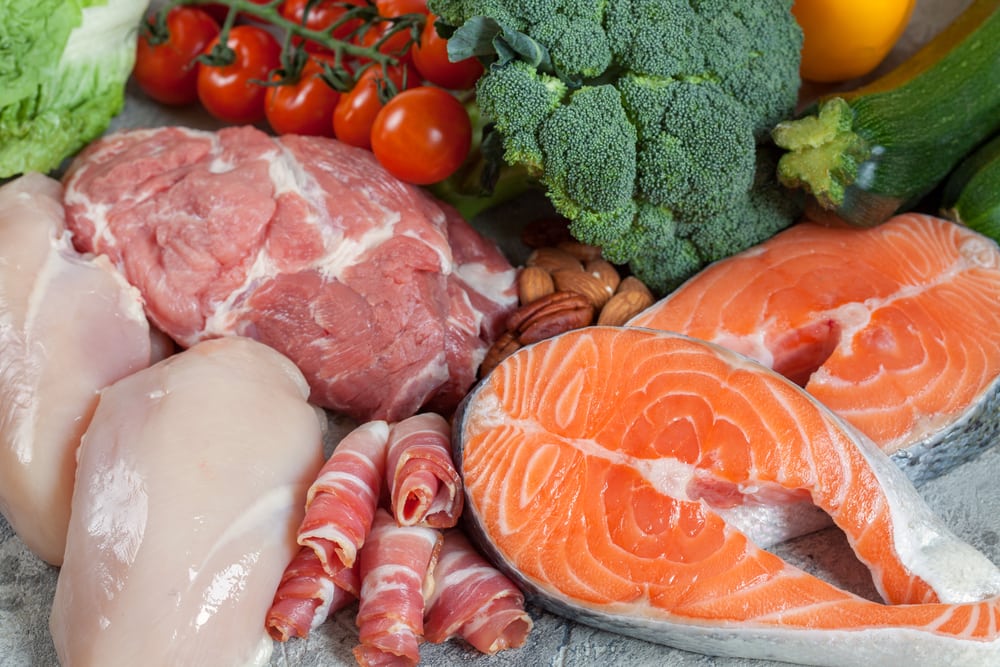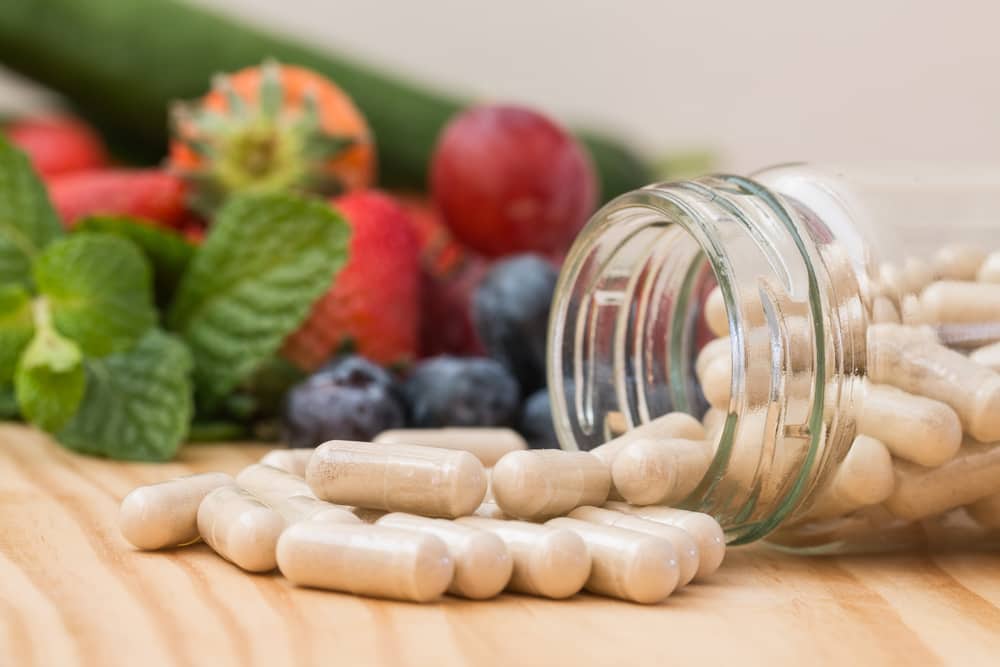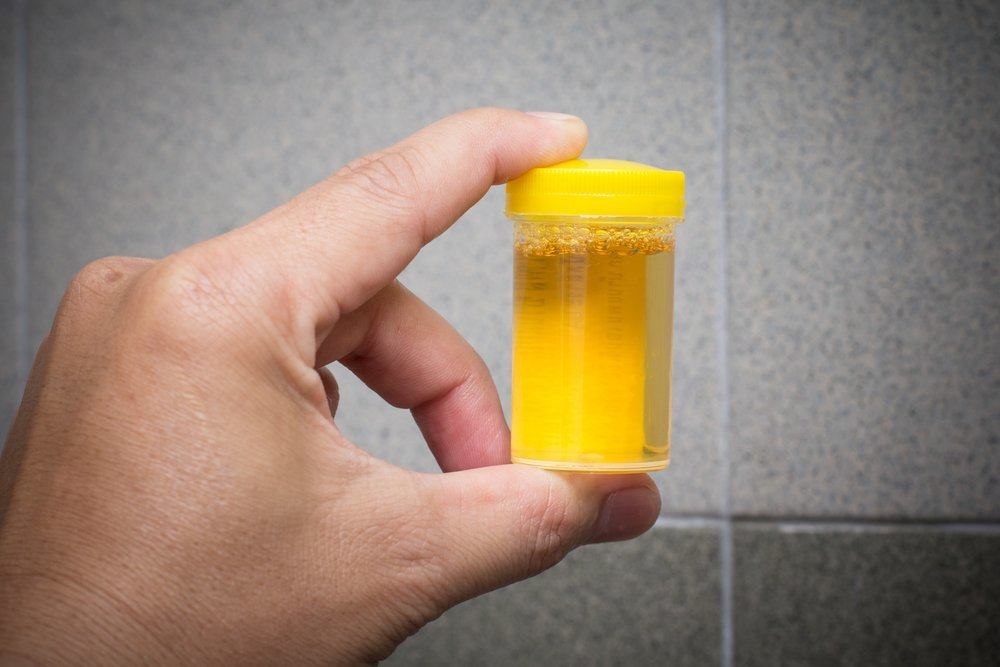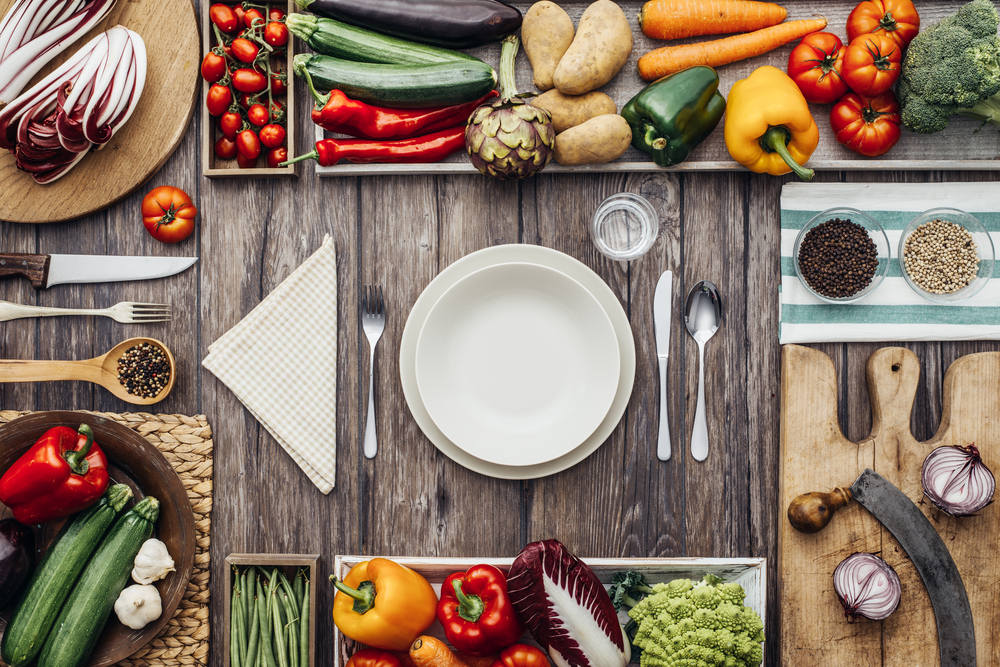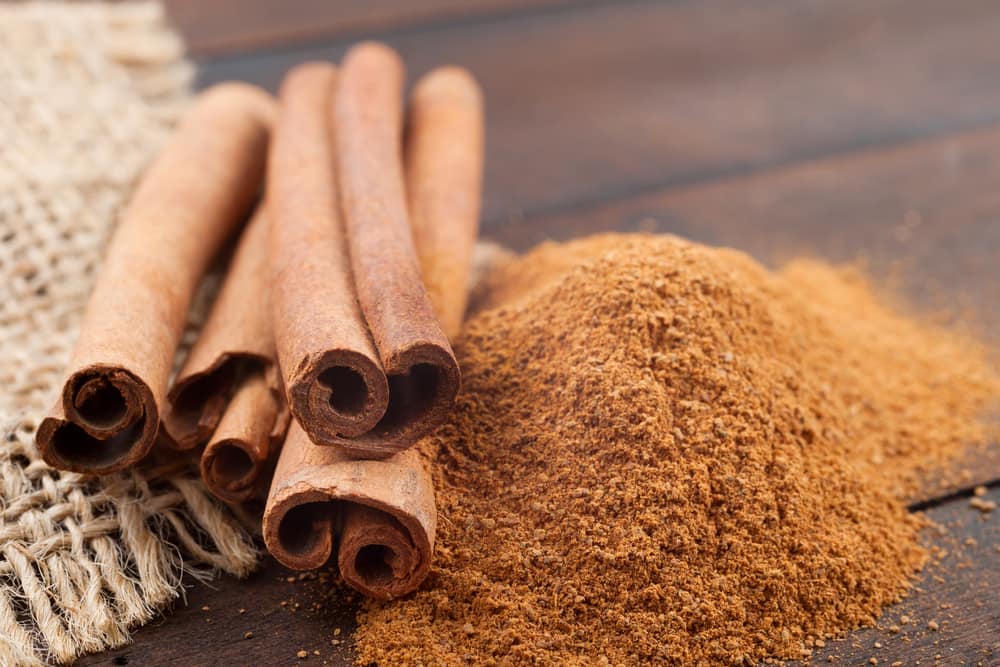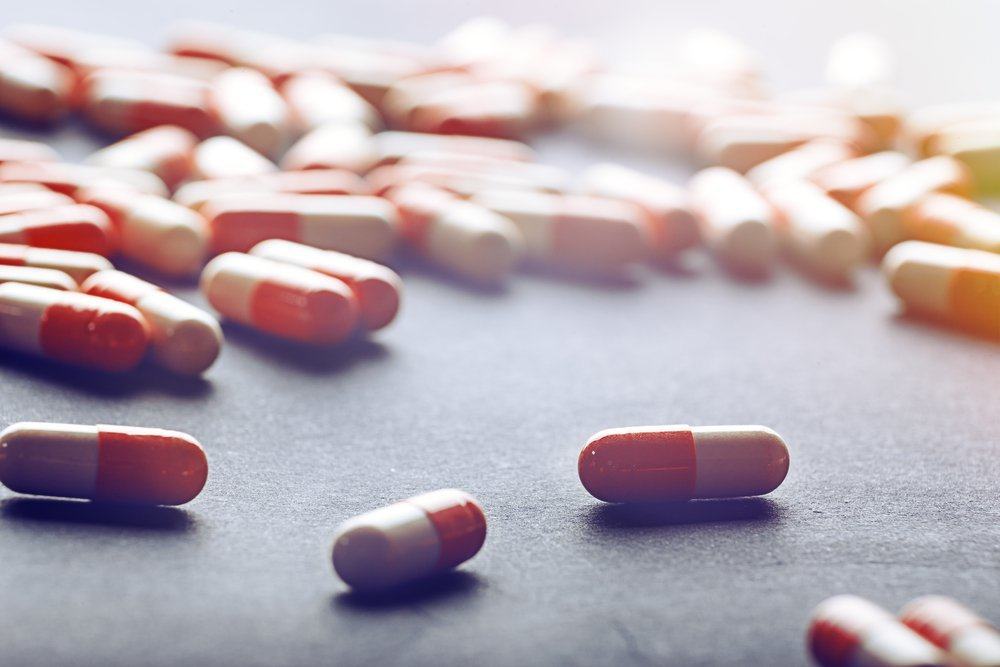Contents:
- Medical Video: 6 Foods to Increase Red Blood Cells
- Why can the body lack blood?
- What are the complications that can occur due to lack of red blood cells?
- Severe fatigue
- Heart problem
- Susceptible to infection
- Disorders of pregnancy
- Dead
- Prevent anemia by consuming blood-boosting foods
- 1. Iron
- 2. Copper substances
- 3. Folic acid
- 4. Vitamin B12
- 5. Vitamin B6
- Various fruits for enhancing blood
- 1. Orange
- 2. Raisins
- 3. Wine
- 4. Strawberries
- 5. Carrots
- 6. Watermelon
- Take blood boosting drugs to increase the production of red blood cells
- Be careful, taking blood boosting drugs can damage your DNA
Medical Video: 6 Foods to Increase Red Blood Cells
Bone marrow is the main producer of blood cells in the body. If the bone marrow cannot produce enough red blood cells to replace dead cells, your body will also lack blood. As a result, you often feel weak and tired. Well, uTo help produce red blood cells in the body, there are various types of blood-enhancing foods and blood boosting drugs that can be your savior. Check the list below.
Why can the body lack blood?
Anemia is a common condition that causes the body to lack red blood cells. This condition occurs when the body does not have enough healthy red blood cells (hemoglobin).
Too little red blood cells in the body can cause the delivery of oxygen and nutrients to the body's cells to be disrupted. This can then cause you to experience symptoms of anemia, such as fatigue, headaches, pale skin, cold hands and feet, and shortness of breath.
The body needs certain vitamins, minerals and nutrients to produce enough red blood cells. Iron, vitamin B12, and folic acid are the three most important substances for producing red blood cells. Unfortunately, not everyone gets these nutrients because of various factors, such as:
- Less intake of certain nutrients. If you eat foods that are low in iron, vitamin B-12, and folate continuously, then you risk anemia.
- Family history. If your family has reduced anemia, such as sickle cell anemia, your potential for the disease is also high.
- Age.The more you age, the more you will be at risk for anemia. The type of anemia that is most often experienced by the elderly is anemia due to lack of vitamin B12 and folic acid.
- Intestinal disorders. Having intestinal disorders that affect the absorption of nutrients in the small intestine (such as Celiac disease and Crohn's disease) puts you at risk of anemia.
- Side effects of surgery. Having performed surgical removal or surgery related to the digestive system such as the stomach and intestines will affect the absorption of nutrients so that you can risk you experiencing malnutrition and anemia.
- Menstruation. In general, women who have not experienced menopause have a greater risk of developing iron deficiency anemia than men and women after menopause. That's because menstruation causes the loss of red blood cells.
- Pregnancy. If you are pregnant, you are more at risk of developing iron deficiency anemia. Because during pregnancy, your iron needs will increase to help increase blood volume and become a source of hemoglobin for your baby to grow and develop.
- Chronic condition. If you have cancer, kidney or liver failure, or other chronic conditions, you will be at higher risk of anemia due to chronic disease.
- Other factors. A history of certain infections, having blood diseases and immune system disorders, alcoholics (alcoholism), exposure to toxic chemicals, and the use of certain drugs can also affect the production of red blood cells and cause anemia.
What are the complications that can occur due to lack of red blood cells?
If left untreated, anemia can cause various complications, such as:
Severe fatigue
When you have anemia that is severe enough, this will make you tired and lethargic quickly. You may be so tired that you cannot complete your daily tasks, even you may be too tired to just play.
Heart problem
Anemia can cause a fast or irregular heartbeat - called arrhythmias. Your heart must pump more blood to compensate for the lack of oxygen in your blood when you are anemic. This can even cause congestive heart failure.
Susceptible to infection
If you are not getting enough of your red blood cells, you will be more susceptible to infection. This happens because red blood cells affect the performance of the immune system in fighting various viruses and bacteria that cause disease.
Disorders of pregnancy
If you lack red blood cells during pregnancy, you will also be at risk of experiencing disorders of pregnancy and fetal development, such as premature birth, low baby weight, and so forth.
Dead
Some inherited anemia, such as sickle cell anemia, can be serious and cause life-threatening complications. Lots of blood loss quickly causes severe anemia and can be fatal.
Prevent anemia by consuming blood-boosting foods
Anemia is a health problem often experienced by many people. Although this health problem usually occurs at a mild level and in a short period of time, untreated anemia can be a serious problem. Therefore, it is important for you to take precautions so that these health problems are not getting serious.
One easy way you can do to increase red blood cell production to prevent blood deficiency is to pay attention to the food intake you consume a day. This can be done by applying a healthy diet that is rich in nutrients. Some nutrition that you must fulfill so that your red blood cell production is fulfilled including:
1. Iron
Iron deficiency can trigger anemia or lack of blood. So, you need to eat foods that are rich in iron. Iron itself has two forms, namely heme iron and non-heme iron.
You can find heme iron in animal foods such as poultry, red meat (beef or mutton), offal (liver and gizzard), fish and shellfish. While you can find non-heme iron in plant foods, such as green leafy vegetables, whole grains, nuts, and fruits.
2. Copper substances
Copper is one of the minerals needed to increase the production of red blood cells. Blood-boosting foods that are rich in copper include whole grains, nuts, poultry meat such as chicken and duck, seafood such as shrimp and crabs, cherries, and chocolate.
3. Folic acid
Folic acid or vitamin B9 can help increase the number of red blood cells in the body. Lack of folic acid is at risk of causing anemia. Blood booster foods that contain high levels of folic acid such as peas, kidney beans, green beans, and green vegetables such as spinach and broccoli.
4. Vitamin B12
This type of vitamin B complex can improve the function of the bone marrow to form red blood cells. Well, that's why you can make this vitamin as a blood booster food.
You can get vitamin B12 through a variety of foods, such as beef liver, fish, red meat, eggs, milk and processed products, and cereals. Vitamin B12 is rarely found in vegetables or fruits, so you who are on a vegetarian or vegan diet are more at risk of experiencing vitamin B12 deficiency.
5. Vitamin B6
Similar to vitamin B12, vitamin B6 can also help the formation of red blood cells for those of you who lack blood or anemia. To increase blood levels of vitamin B6, try eating rice, wheat, cereals, and nuts. Beef, mutton, lamb and chicken are also rich in vitamin B6.
Various fruits for enhancing blood
Various essential nutrients to form red blood cells are not only contained in meat and green vegetables. In fact, fruits also contain various nutrients needed to produce red blood cells. Some fruits that can help increase red blood cell production include:
1. Orange
Oranges contain high folic acid. Well, this is what makes oranges one of the blood boosting foods that are effective because folic acid itself can help the body to make new red blood cells. According to the USDA National Nutrition Database for Standard Reference, the content of folic acid in one glass of orange is 31.5 mcg.
Not only is it rich in folic acid, oranges can also absorb iron in the body because this one fruit is rich in vitamin C. Iron is a component of red blood cells that helps oxygen binding, which speeds up the formation of red blood cells.
2. Raisins
This one dried fruit can also help you increase blood. This is because of the iron content in raisins. In 2/3 of a cup raisins contain about 2 grams of iron.
You can also enjoy this dried fruit in various ways, such as added to cakes, cereals, oatmeal, and others. This certainly can facilitate you in getting a source of iron.
3. Wine
Just like oranges, grapes are also one of the fruits that are rich in folic acid. In one glass of wine, it is known to contain 21 mcg of folic acid. Not only that, although the shape is small, this one fruit also turns out to contain vitamin A which helps the formation of red blood cells.
4. Strawberries
Strawberries contain high antioxidants so that they can help the body produce red blood cells. The antioxidant content in the fruit that many people like, especially women, is also useful to protect body cells from free radical damage, you know!
5. Carrots
Carrots are often referred to as fruits that are rich in vitamin A. Yes, the content of vitamin A in the form of retinol in orange fruit plays a role to help the body produce red blood cells and deliver oxygen to the body's cells.
In order to maximize the production of red blood cells in the body, you are advised to eat carrots at least twice per week.
6. Watermelon
One more fruit that can be a blood booster is watermelon. One piece of medium-sized watermelon is known to contain 1.5 grams of iron. In addition, watermelon also contains vitamin C, which is an important nutrient to make it easier for the body to absorb iron. So, in one meal, you can get these two benefits.
Take blood boosting drugs to increase the production of red blood cells
In some cases, meeting the blood-boosting food intake is not enough to increase red blood cell production. If you have this, blood booster medication is needed to prevent anemia or lack of blood.
Usually blood enhancing drugs are in the form of food supplements. Although classified as a supplement, blood boosting drugs must still be taken according to the rules of use and the right dosage. Moreover, don't take this supplement carelessly if you don't really need it.
Before taking a blood booster drug in the form of a supplement, you are recommended to first consult a doctor or nutritionist to determine whether you really need it or not.
Depending on the cause, supplements commonly used to treat blood deficiency are supplements of iron, vitamin B12, folic acid, or other vitamins and minerals.
Your doctor may also prescribe you some other blood enhancing drugs, such as:
- Corticosteroids or other drugs that suppress the immune system
- Erythropoietin, a drug that helps your bone marrow make more blood cells
If these drugs do not make your condition better, blood transfusions may be the best choice for increasing your red blood intake.
Be careful, taking blood boosting drugs can damage your DNA
A recent study found that blood boosting drugs consumed by millions of people without a doctor's prescription can damage the body in just 10 minutes.
The study, conducted by researchers from the National Heart and Lung Institute at Imperial College London, tested the effects of high doses of blood-enhancing drugs on human endothelial cells, which connect arteries and veins.
As a result, after ten minutes of injecting a high-dose blood booster drug into the cell culture sample, the researchers found signs of DNA damage in the walls of the vein and arteries.
This reaction occurs in blood enhancing drugs in the form of iron supplements. Based on these studies it is known that endothelial cells appear to be quite sensitive to iron in excess amounts and can trigger damage to cells in just 10 minutes after the drug is taken.
Actually, every cell in our body has an automatic program that will repair itself when it is damaged. However, when you add iron, the program is actually forced to work harder than usual, triggering cell damage.
Until now researchers have not known exactly what the manifestation of DNA damage to the walls of blood vessels due to overdose of iron intake. Therefore, further research is needed regarding the impact of cell damage to a greater extent.
Even so, some people who take iron supplements for the condition of telangiectasia haemorrhagic, a congenital abnormality in blood vessels report experiencing nose bleeds more often after taking the drug.
So, how do you not get these side effects? The method is easy. If you are not pregnant, have severe menstrual bleeding, or other anemia symptoms, make sure you get iron, folate, vitamin B12 and other nutrients contained in blood-boosting foods as mentioned above.

